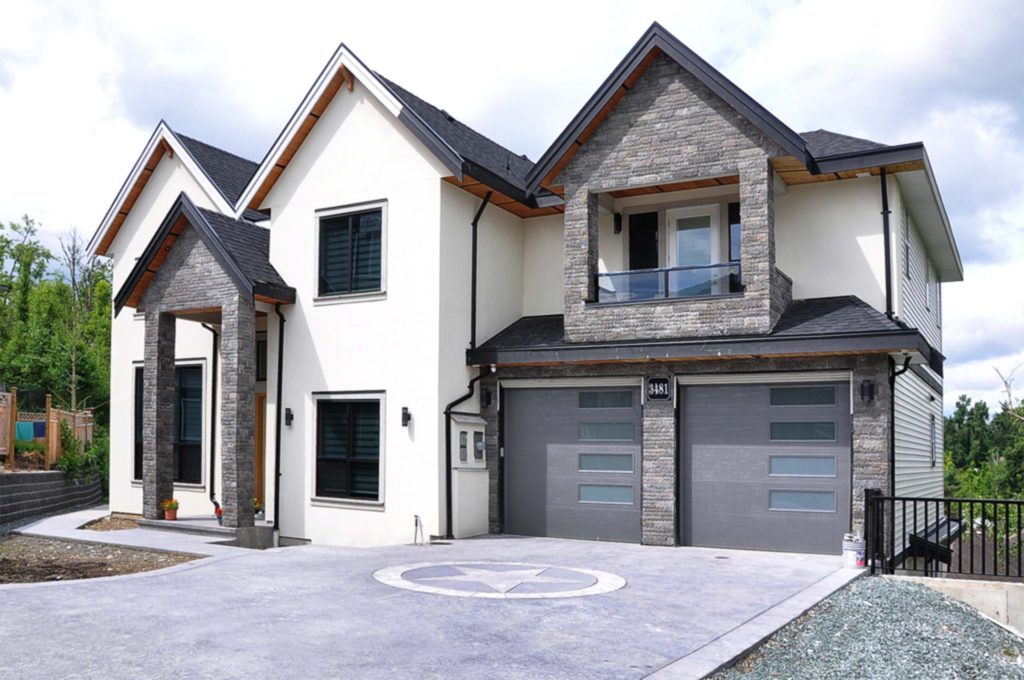 The popularity of stone veneers continues to grow among homeowners who view them as a viable alternative to solid stone to enhance their home’s interior and exterior. Choosing the right veneer for an exterior project, whether it is a stone facade or an outdoor space, is a challenge, given the large quantity and variety available in the market.
The popularity of stone veneers continues to grow among homeowners who view them as a viable alternative to solid stone to enhance their home’s interior and exterior. Choosing the right veneer for an exterior project, whether it is a stone facade or an outdoor space, is a challenge, given the large quantity and variety available in the market.
Below are a few things homeowners must consider when making their stone veneer selection.
Type of stone
Two types of stone veneers are available for a homeowner’s consideration to create stunning exterior designs—natural stone veneers and manufactured stone veneers. Choosing between these two types of stone veneers is a matter of one’s personal preference. Natural stone veneers are cut from solid stones quarried from the earth. The stones are cut thin (some as thin as ¾ inch) to create veneers that facilitate easier transportation and installation.
Artificial or manufactured stone veneers are fabricated in a manufacturing process to imitate natural stones. Concrete and other materials are baked in stone-like molds to create the veneers. Advancement in technology has allowed manufacturers to create manufactured stone veneers that are almost indistinguishable from and sometimes lighter than those cut from real stones.
Manufactured stone veneers match natural stone veneers in versatility, durability and diversity. However, natural stone veneers are outmatched by manufactured stone veneers in the variation of colours and textures that the manufacturing process can produce, making them easier to conform to the aesthetic of a space. Since manufactured veneers are marginally cheaper, they might be the better option for homeowners working with a tight budget. That said, some homeowners might find the authenticity of natural stone hard to beat.
Colour, shape, texture and size
Suppliers offer stone veneers in a variety of colours, shapes, textures and sizes. The selection experience can be overwhelming. Think about your home’s exterior elements and zero in on the colours that will complement the colours you already have. What shape should the stones have? Do you prefer rounded, irregular, rectangular or square? Should the stones be smooth or rough to enhance the architectural detail you want? What size should the stones be? The general rule is that larger stones work with larger spaces while smaller stones work with smaller spaces.
Panel or single stone veneers
Stone veneers can either be obtained as a panel system or as single units.
Veneer panels are comprised of multiple stones pieced together into a large slab. Installation can either be done with screws or mortar. Panels are comparatively easy and quick to install and DIY friendly.
Single stone veneers allow homeowners more flexibility in configuring a unique design. Additionally, you can choose the pattern, joint width and grouting style most appealing to you and your project. Installation can be tricky and time-consuming with single stone veneers resulting in relatively high labour cost if you choose to hire someone to do the installation.
Stone pattern
Ledgestone, ashlar, square and rectangular and mosaic are among the common patterns used when installing stone veneers. Stone sizes will vary according to each manufacturer’s specifications. Think about which pattern would best suit your project.
Ledge stone: Stones in ledge stone patterns are rectangular and stack flat with tight seams. Rather than displaying the face of the stone, the end grain or interior of the stone is exposed instead. The pattern is popular with homeowners who desire a modern look.
Ashlar: Ashlar patterns are similar in appearance to ledge stone patterns. The difference is the larger stones used by the ashlar pattern in a broader range of heights. Ashlar patterns are ideal for large or small projects.
Square and rectangle: Square and rectangle patterns, as the name indicates, incorporate square and rectangular stones. The straight lines of the stones offer a more structured and uniform look to a design and allow for easier installation. Installation produces little waste making this method more cost-effective than other options.
Mosaic: Mosaic patterns produce unique designs that are almost impossible to replicate. Stones of different shapes and sizes are used, and as no two stones are alike, the design possibilities are limitless. Mosaic patterns are better suited to larger projects.
Where to buy stone veneer
If you are looking for a stone supplier in Surrey or Metro Vancouver, contact us at Pacific Art Stone. We carry a wide range of masonry products, including manufactured and natural stone veneers suitable for your interior and exterior projects. View our online gallery or peruse samples at our locations. Our knowledgeable and friendly staff can answer any questions you may have and help you make the right selection for your project.
